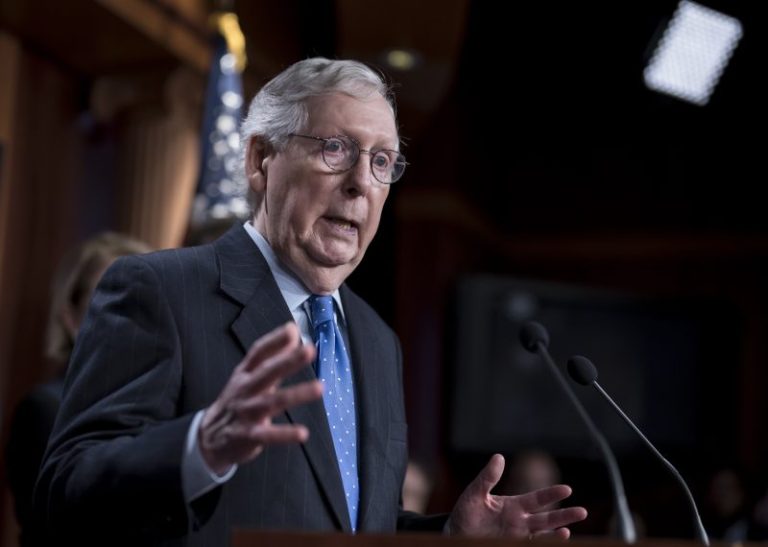Same-sex marriage is one of the more remarkable examples of how politics can shift rapidly. A decade ago, views of allowing same-sex couples to wed were evenly split; nearly every state banned legal recognition for same-sex unions.
Attitudes shifted quickly after that. Support for same-sex marriage grew, and in June 2015, the Supreme Court ordered that same-sex unions be granted the same protections as marriages between men and women. Opposition largely collapsed. The issue had been settled.
And yet. On Wednesday, the Senate held a vote considering whether to advance federal legislation protecting same-sex marriage in the event that the Supreme Court — after having rescinded its decision in Roe v. Wade — decided to unwind its protections of those unions. And while 12 Republican senators joined the Democratic majority in advancing the bill, 37 Republicans opposed moving ahead on the measure.
Why? The ongoing political power of the conservative base — and that base’s ongoing, fervent opposition to the idea.
Every four years, Stanford University and the University of Michigan conduct a national poll, American National Election Studies, measuring sentiment on political issues, ideology and vote propensity. In 2020, it measured views of same-sex marriage, finding that more than two-thirds of Americans think those unions should be recognized by law. About 1 in 5 Americans support only civil unions for same-sex couples. Fourteen percent, meanwhile, oppose any recognition whatsoever.
As you might expect, though, there are wide divides by party. The ANES breaks out party identity into seven groups, ranging from strong Democrats through independents who lean toward one party or the other and on to strong Republicans.
Among Democrats and Democrat-leaning independents, 4 in 5 support same-sex marriage. Among Republicans, it’s just over half — and among strong Republicans, only 2 in 5 support same-sex marriage.
If we consider ideology — again on a seven-point scale from extremely liberal to extremely conservative — you can see a much sharper divide. Nearly all “extremely liberal” Americans say they support same-sex marriage. Only about 1 in 5 “extremely conservative” Americans do. Nearly half of that group thinks there should be no legal recognition for same-sex relationships at all.
We can use another measure of ideology, Voteview’s assessment of politicians’ votes, to show how this overlaps with the Senate vote. The most moderate members of the GOP caucus were more likely to vote to advance the bill. The more conservative members were more likely to oppose it. (The most conservative Republican senator to vote to advance was Sen. Cynthia M. Lummis (R-Wyo.).
Now let’s overlap ideology and party. You can see first that those with stronger Republican identities are more likely to oppose same-sex marriage: 70 percent of moderate Republican-leaning independents support same-sex marriage, vs. 53 percent of moderate “strong Republicans.”
But the bigger difference is between moderates and conservatives. Fewer than 1 in 4 extremely conservative strong Republicans supports legal recognition for same-sex marriage.
Extremely conservative strong Republicans make up only a small part of the country, of course — about 10 percent, according to the ANES. But those Republicans are more likely to vote in party primaries than less conservative Republicans. Even among Republican-leaning independents, those who identify as more conservative are more likely to say they vote in primaries — and more likely to oppose same-sex marriage.
That pattern also holds for self-reported campaign contributions.
There’s another useful consideration here. The vote to advance the legislation in the Senate had 62 yes votes, somewhat less than the 67 percent support same-sex marriage enjoys nationally. Those 62 senators, though, represent about 66 percent of the country’s population (allocating half of a state’s population to each of its senators). In other words, while same-sex marriage does enjoy strong support nationally, the vote to advance the bill ended up representing the level of support fairly accurately.
That the bill needed 60 votes to advance in the first place, of course, is a different subject entirely.

